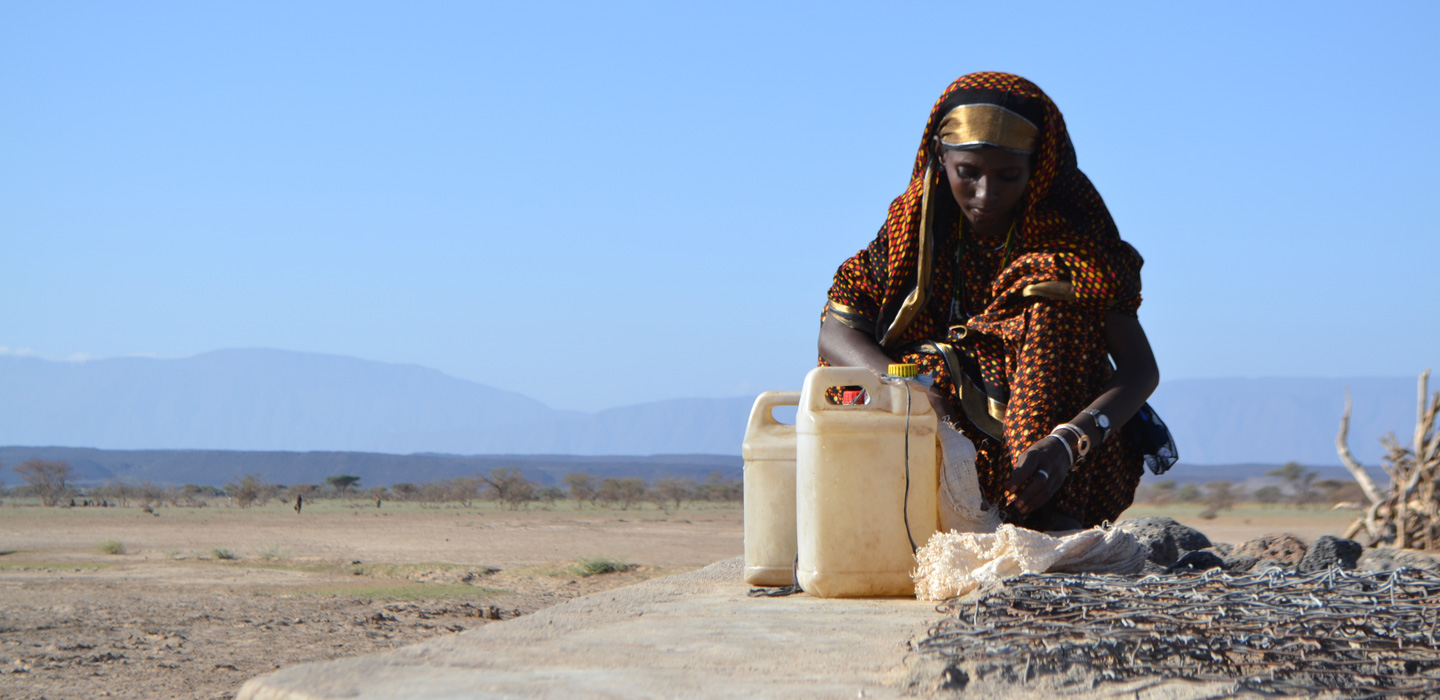Handle with care: Vulnerability, the human face of state fragility
IFAD Asset Request Portlet
Asset Publisher
Handle with care: Vulnerability, the human face of state fragility
Estimated reading time: 3 minutes
Vulnerability and fragility might not be perfect synonyms, but they share a very similar meaning. Both words refer to something breakable, delicate and frail – something that needs to be handled with care.
We can also use these words to describe the status of people and governments who find themselves in the middle of a protracted conflict. Even though conflict-affected states often display outward signs we might typically associate with strength, such as increased military presence, they actually find themselves in a state of profound fragility. And of course, human vulnerability and institutional fragility go hand in hand.
Vulnerability is aggravated by fragility
In the Near East and North Africa (NEN) subregion where I work, protracted crises are unfortunately endemic. In 2018, there were almost 2.7 million refugees and 10.3 million internally displaced people in the NEN subregion. Most of them were fleeing from conflicts in Iraq, Syria and Yemen, three of the largest humanitarian and displacement crises in the world. These crises lead directly to food insecurity, too; the civil war in Yemen alone, for example, has caused 18 million people to become food-insecure as of 2019.
In fragile contexts, vulnerability is brought to an extreme. Institutions and governance systems are weakened and generally lack the capacity to respond to shocks such as conflicts or natural disasters. Additionally, fragility and crises often lead to food insecurity as populations lose access to the resources needed for food and agricultural production. For example, 60 per cent of all chronically undernourished people, and 75 per cent of all stunted children ages five or below, live in conflict-affected countries. Conversely, food insecurity can itself lead to conflict. During the Arab awakening in 2011, for example, high food prices were cited as one of the contributing factors to the unrest.
In such contexts, the most vulnerable groups, particularly women and youth, are those who bear the heaviest burden.
Empowering the most vulnerable to address fragility
Women play a crucial role as peace builders and development drivers, yet they continue to face challenges in terms of employment and income. These effects are felt especially acutely in the NEN subregion, where only 15 percent of young women participate in the labour market, compared with 35 per cent worldwide.
The NEN subregion also has one of the world’s highest youth unemployment rates – nearly 30 per cent as of 2016, compared with a global average of 13 per cent. The flight of unemployed youth from rural areas in search of better opportunities can trigger a spiral of socio-political instability, conflict and mass migration. We saw it with the Arab Spring.
Furthermore, conflict frequently disrupts young people who are transitioning towards socio-economic independence. When these transitions are especially problematic, it can lead to frustration, radicalization and unrest. Adversity experienced earlier in life can carry implications for the future, too: interrupted education, for example, can undermine the possibility of finding a decent job.
Nevertheless, we know that including women and youth in the development process is an effective instrument for promoting stability and preventing the spread of violence. Promoting gender equality and empowering women, along with creating employment opportunities tailored to women and youth, can lay the groundwork for building peaceful and more equitable societies.
Concerted efforts to reach the most vulnerable
The international community is realizing that global approaches to address the impact of fragility on the most vulnerable communities need to change, and that this can be done by adopting a long-term development mindset rather than a short-term, purely humanitarian one.
IFAD and its partners can play a major role in bridging the gap between humanitarian and sustainable development responses. We see and respond to the very human face of fragility: the farmers whose harvests are destroyed by repeated droughts, the women and children who seek refuge in foreign lands to escape from conflict and violence. We support them with tools to better cope with and react to unfavourable events, because we are convinced that sustainable development solutions to fragile contexts can only be developed through a direct focus on the needs of vulnerable populations.
Our experience shows that responsible and targeted investments in agriculture and rural development can make an important contribution to reducing conflict and achieving peace and stability. Our projects have proven effective in promoting stability and enhancing resilience to conflict in rural areas, and our community-driven approach allows effective implementation even under challenging security conditions in highly fragile contexts.
Building poor people's capacity, empowering them through community organizations, and promoting participation, social inclusion and gender equality are at the heart of IFAD's work. We recognize that fragility has many dimensions, and we are committed to working with our partners – and the people – to address its drivers and consequences in a holistic manner.
Learn more about IFAD’s work in the NEN subregion.
Publication date: 05 March 2020